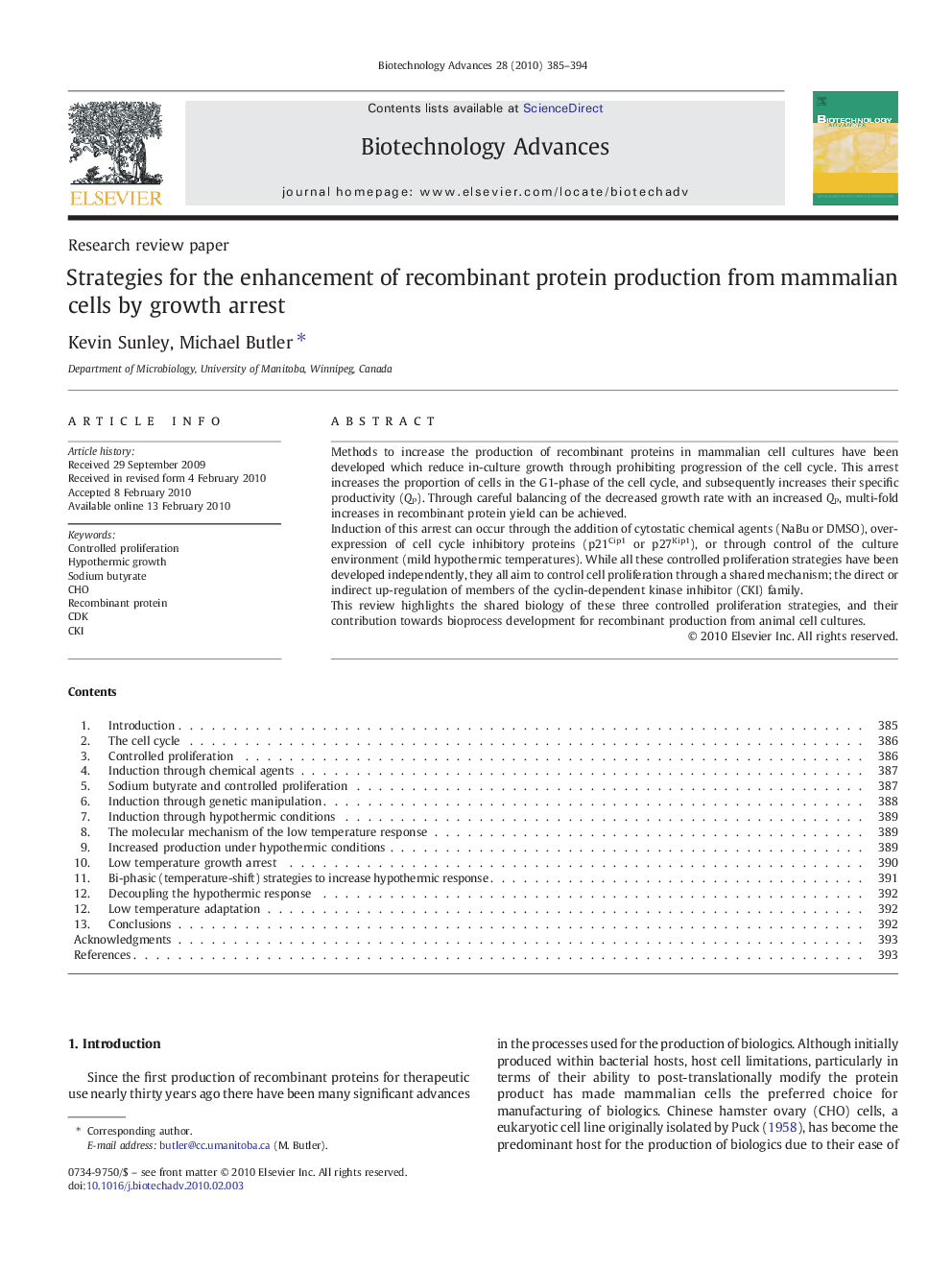| Article ID | Journal | Published Year | Pages | File Type |
|---|---|---|---|---|
| 14709 | Biotechnology Advances | 2010 | 10 Pages |
Methods to increase the production of recombinant proteins in mammalian cell cultures have been developed which reduce in-culture growth through prohibiting progression of the cell cycle. This arrest increases the proportion of cells in the G1-phase of the cell cycle, and subsequently increases their specific productivity (QP). Through careful balancing of the decreased growth rate with an increased QP, multi-fold increases in recombinant protein yield can be achieved.Induction of this arrest can occur through the addition of cytostatic chemical agents (NaBu or DMSO), over-expression of cell cycle inhibitory proteins (p21Cip1 or p27Kip1), or through control of the culture environment (mild hypothermic temperatures). While all these controlled proliferation strategies have been developed independently, they all aim to control cell proliferation through a shared mechanism; the direct or indirect up-regulation of members of the cyclin-dependent kinase inhibitor (CKI) family.This review highlights the shared biology of these three controlled proliferation strategies, and their contribution towards bioprocess development for recombinant production from animal cell cultures.
